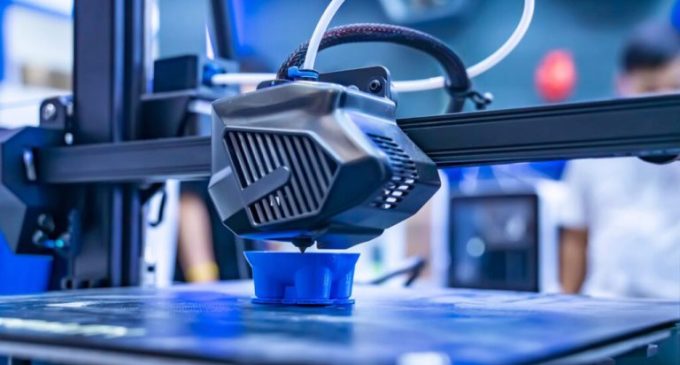Report reveals ‘True Impact’ of manufacturing is nearly a quarter of UK GDP

Manufacturing is having a far greater impact on the UK economy than first thought, according to a major new report. ‘The True Impact of UK Manufacturing’ shows the industry is worth £518 billion and supports 7.3 million UK jobs directly and across the supply chains/communities it operates in. This represents nearly a quarter of total GDP (23%) and far bigger than the direct contribution of 8.2% that is usually quoted by economists.
Carried out by Oxford Economics and the Manufacturing Technologies Association (MTA), the in-depth report also shows that ‘making things’ accounts for 34.5% of all UK goods and services exports, whilst the median wage is £31,300 – 11% higher than the national median wage.
The findings are even more impressive when you consider the sector has had to navigate a myriad of challenges outside its control in recent years, including changing relations with the European Union, the Covid-19 pandemic, unprecedented increases in energy costs and global supply chain fragility and international conflicts.

MTA’s Chief Executive Officer James Selka is now urging the sector to build on this report by exploring ways in which it can address the skills shortage and develop successful programmes, such as the High Value Manufacturing Catapult Centres, to increase wealth creation by commercialising more of the great ideas and innovations born in the UK.
“This is a fantastic insight into the true impact of manufacturing in the UK and reinforces what many of us already know – that industry is a far greater contributor to GDP and jobs than listed in national accounts,” he commented.
“Our report has been designed to take a ‘deeper dive’ and looks at the direct, indirect, and induced impacts of manufacturing, which is a far more comprehensive overview of what we make, the complex nature of our supply chains and the economic benefit gained from the spending of wages by those employed in our sector.”
He continued: “The results illustrate that manufacturing accounts for £518 billion of GDP and supports 7.3 million jobs, most of which enjoy higher than average wages. We are also a part of the economy that invests heavily in new technologies, with nearly half (47%) of total R&D investment made by manufacturers.”
The MTA is now calling on a well-integrated commitment from the whole nation to help industry realise its potential, ranging from business leaders and academics to policymakers so crucial in developing a cross-party industrial strategy.
The recent Advanced Manufacturing Plan – accompanied by support worth £4.5 billion – has been welcomed as a step in the right direction and an important vehicle in helping to cultivate the new technologies and industries being born, such as electrification, lightweighting, less carbon intensive materials and renewable energy.
Introducing new measures that increase exports should also be a priority and there is an unprecedented opportunity to deliver critical sovereign capabilities from public health to defending our realm.




















